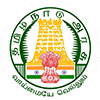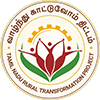Community Farm School - Success Stories
Improving Gauva Production, Grades with CFS
Name: Goyya Producer Group
Village: Karumbur village panchayat
Block: Annagramam
District: Cuddalore
Background
In our village and in the neighbouring villages, the cultivation of guava is high. Approximately 1200 acres are currently under cultivation. Each of us cultivators were producing individually. From finding manpower for agriculture, to purchasing fertilizers and maintenance, we were facing many difficulties. There is not much profit in production either. So 30 women came together to form a producer group and worked together.
We joined producer group, VKP knowing the benefits of the project. Through it, we bought a power tiller machine with a grant of Rs.1,50,000. Earlier we used to hire a power tiller for our field use. The rent was high and now we use our own power tiller at lower rents.

Economic development through group production
Similarly, when we sold guava individually, we did not get proper agents, we used to send the pods to different traders, and we undervalued each grade for each price, so we did not get good prices and faced a lot of losses. The Koyakani variety we sell is a grade that can be sold for 100 to 200 rupees only. In this, the workers will be paid Rs. 50-70. At present, our team is doing this agricultural work, so we have a profit. And we sell the entire production of our group to the same company at a good price. This reduces the difficulty of marketing and gives us a good profit as we get a reasonable single price for all grades. All 30 members of the group take the profit equally.Similarly, we are able to purchase the fertilizers required by our group at a lower cost because of our bulk procurement. Through this our economy is happening in a good manner.
CFS training for producer group
And VKP has provided us Community Farm School (CFS) training. For this our group, we selected me as an instructor and gave 5 days training for trainer at KVK center in Krishnagiri. In this training we taught about crop diseases, care and protection method, longevity of crop, application rate of natural and synthetic fertilizers for crop, these details I am teaching to all 30 of our team members.

Program funding for CFS training
For this CFS training we received Rs. 64,000 from VKP. These training sessions should be conducted twice a month for 6 months. In this, natural fertilizer is prepared (cow dung, column, curd, jaggery are processed for a week, and the acid formed is to sprayed on the guava plants to prevent diseases) to control root pest attack on the guava crop, leaf shriveling disease, spotting measles in guava, etc. Next, we have all our guava growers send our soil to the Cuddalore lab for testing to prevent root rot. Based on the research, we find the deficiency of nutrients like boron and iron in the soil and use bio-fertilizers accordingly, thereby increasing our yield.
Increase in production – Triple profit
Earlier we used to produce 10 grade pods per tree, now we are producing 25-40 grade pods, which has increased our profits and we are also exporting guavas. We have also asked to set up a factory in our area to add value to guava and make guava sauce, guava chocolate etc. We have said that we will make arrangements for it through the project.
Improving Yield and Income with Scientific Knowledge
Panchayat: Pappampady
Block: Tharamangalam
District: Salem
CFS Training: Groundnut Cultivation Training
Background
My name is Palaniammal and I live with my family in Pappampady Panchayat, Tharamangalam Block, and Salem District. I am a member of Srivedanar Women’s Self Help Group. My husband’s name is Vedappan and I have two sons. My husband and I are doing farming together.
Understanding the context
There is not enough income in agriculture. Not knowing the right season and not knowing the nature of the seed caused huge losses in agriculture. We were very distressed due to lack of income and progress in our familiar occupation of agriculture. So we were thinking of going for another job. All of us physically and mentally fit but only a few of us are making progress. This, we can to understand was because proper advice, planning and training are all necessary to succeed.

CFS training
While we were thinking about what to do and where to go, we heard about the 16 weeks training for groundnut cultivation given by Community Farm School through the Vazhndhu Kattuvom Project, to improve the farming outcome.
We learnt about the lives present in the soil and how to protect us
I immediately signed up for the training along with the other women members in our group to learn about soil testing, water testing, land preparation, seed treatment, natural fertilizers, vermicompost preparation, natural pesticide preparation, disease management, handling of modern technologies, product valuation and marketing. We learned all the necessary information to help in farming development in a clear and concise manner.

Training Outcome
We learnt how to make bio-compost, azos pyrillum, phosphobacteria, trichoderma, explanation manual, plus trap and yellow trap etc. after the CFS training conducted by the VKP, we could increase our yield and we harvested 1 ton of groundnuts and we made an income of Rs. 90,000. We are preparing for the second sowing phase now.
From seed to harvest: Honouring the tradition of crop cultivation
Name: Vivasaya Urpathiyalar Kuzhu
Panchayat: Chatrapatti
Block: Oddanchatram
District: Dindigul
Identifying Farmers for Training
One of our group’s members and leader farmer (SPARK) attended a 3-day training in maize cultivation at KVK Gandhigram, facilitated by VKP. We learned natural farming practices at VKP’s Community Farm School. With the project’s initiation, we formed Vivasaya Urpathiyalar Kuzhu, for the collective farming of maize – applying only organic fertilisers and pesticides.

CFS Training
After cultivating maize in a demo plot, the group has brought half an acre of land under cultivation. Although the yields were low compared to the cultivation using chemicals, we stick to organic cultivation, fully aware of its long term benefits for soil health. Besides, we could cut down the cost of inputs as we make our own organic bio- fertilizers and pesticides with locally available raw materials.

